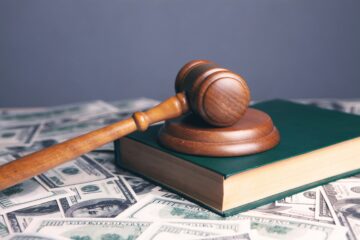Herbalife LTD. is a small cap company, by every measure. It sells weight management, nutritional supplement, energy, sports & fitness products and personal care products. It was founded in 1980 by Mark Hughes, who is still the president. It has a market capitalization of $4.27bn and some growing net sales. These were $3.5bn at the end of the fiscal year 2011, up from $2.7bn (+26.2% y-o-y). This trend seems to be reinforced by the first nine months of 2012, where Net Sales were already $3.0bn, meaning a 16.7% increase on the same period one year before. Net income shows a very health double digit growth as well. Cash flow from operating activities is positive and growing, standing as of end 2011 at $509mm.
The only “red flag” which one could observe is the sensible increase in inventories, which can be reconciled with the fast growth of sales the company is undergoing. So far, nothing seems strange, so why did Bill Ackman, Chairman and CEO of Pershing Capital Square, come out by saying that he had accumulated a 20mm shares short position on the company by saying it was a Ponzi scheme, where sales numbers were inflated and the structure was soon going to collapse? He also said that his own call was confirmed by one full year of discussions and research on the company. He presented his findings to investors in a three and a half hour long conference, which was also broadcasted live on the internet. What actually made the story take the headlines was a joint interview with rival-enemy Carl Icahn, activist investor and CEO of Icahn Enterprises.
In a 20 minutes interview full of insults on CNBC, Icahn plainly said that “this is not the right style to go out” and that he did not respect Ackman at all. He defined him as someone with “the worst reputation on Wall Street”. The discussion went over to completely unrelated topics with Mr. Icahn plainly saying that Mr. Ackman’s involvement into charity was “complete B….”. Mr. Ackman himself just said that Mr. Icahn “is not used to having someone stand up to him.” Mr. Icahn then dubbed Mr. Ackman’s action as “the mother of all short squeezes”. After this epic showdown, which goes under the name of “Battle of Billionaires”, what people are trying to understand is what really is going on: Is it just an enemies’ fight or is there a serious issue with Herbalife?
Carl Icahn`s Involvement
Voices then started to spread that maybe Icahn was building up positions in the company and was simply annoyed that Ackman was trying to force the share price to fall to profit from his short trade. Indeed it happened that Icahn bought a few days later a 13.6% stake in the company and on March the 5th, the company issued a statement, saying that two new board members were going to be elected from Icahn Enterprises, which took a 12 month commitment to go as high as 25% in the company and not sell the stake, unless the share prices induced a $488mm loss (upper bound) on Mr. Ackman’s position, which apparently amounts to $1.0bn.Mr. Icahn bought the shares for an average price of $36.11, saying that the company was poised to gain from renewed interests on the Obesity fight. Ackman’s return on his $1 billion bet against Herbalife has been cut to 16 percent from 27 percent since company shares began rising Feb. 26. The same advances have lifted Icahn’s return on his $506 million investment in Herbalife to almost 14 percent, while Dan Loeb’s Third Point LLC now has an estimated paper profit of 32 percent on his bullish bet, according to data compiled by Bloomberg. Ackman and Loeb haven’t disclosed the exact price at which they established their positions. Based on average trading prices during the period they invested, Ackman sold short at about $48.58 a share while Loeb bought his stake for about $31.10 a share.
A closer look at Pershing Square Capital Management`s reasons for the massive bet
Pershing Square Capital Management has placed USD 1 Billion in a short position in Herbal life. What are his main arguments?
Bill Ackman`s main argument is that most of the sales of herbal life’s products to distributors are used by the distributors themselves, and is not being sold to external customers. Herbalife states that this is to some degree true, but that it is caused by the fact that the distributors get a good discount on the product, also if the purpose is to use it themselves. In fact, many of Herbalife`s distributors are actually passive, which means that they are members only to get the discount on the products.
As mentioned earlier, the firm`s growth is quite impressive, and therefore we believe that the risk of “Pershing Square Capital Management” to place 8-9% of the fund in this short bet is quite high. For the short to be successful, the authorities have to press charges on the firm because of what Ackman characterize pyramid like scheme. We do not find this very likely, as the firm has been faced with similar allegations previously, and never been faced with charges by the authorities earlier. The firm has in fact existed for over 30 years.
The second argument is that distributors may leave the firm, as they discover that it is actually a pyramid scheme, and that the lower levels of the organization will start to understand that they will never get rich by participating in this scheme. This will hurt the organization badly, and it will also make new recruitment of distributors very difficult. As a matter of fact, only a small fraction of the distributors actually get rich by working at Herbalife. This could be an issue, but we do not believe that the distributors have been fooled into the company by dreams of becoming millionaires.
The Company`s explanation
The CEO of the company issued then another statement by saying that he would consider going private if the conditions are there. The real question is: how is it possible that two hedge fund managers take such a different position on the same company?
Going in order, there have been doubts about the company and the Multi Level Marketing business. The company issued a statement in that respect in July 2012, called “Assessing an MLM Business: Herbalife as a Legitimate MLM” , written by Anne T. Coughlan, Professor at the Northwestern Kellogg School of Management.
The report explains the following:
1. The business model of Herbalife does rely on 3.2mm resellers, who buy the products and learning kits from the company and then go retail (only in China, they were forced to sell through “true” shops), but the incentives they give to their Salesmen-customers are incompatible with a Ponzi scheme. For two reasons: a) Overall costs for incentives are 44% of Net Revenues and not unsustainable. b) No incentive package is given for mere recruitment, but just on sales performances.
2. Enrollment fees into the salesman program are indeed lower than those of competitors. 95.55$ compared to the 99$, which the U.S drugs and selling administration says is a reasonable price.
3. The company has launched a variety of new products and hired Ph.ds with 180 scientists and 19 Ph.ds. That effort is not compatible with a Ponzi Scheme. Sure?
4. The company discourages sellers from loading up excessive inventory. An illegal pyramid has no incentive to promulgate a no-inventory-loading policy, because any product it might sell would have little or no real market value, so discouraging inventory loading would result in no product being bought at all and thus no fueling of the pyramid scheme that gives commissions on mandatory purchases by new recruits.
5. Consumption by Non-Distributor versus consumption by Distributor End-Users is not a relevant criterion. The company has no database allowing for a precise number split, but expects to generate 34-41% of sales from daily consumption of products, through clubs.
Indeed some of the reasons are no reason at all to say that Herbalife is not a pyramid scheme. Enron was a company employing the best and the brightest scientists, but used accounting loopholes and tricks to mislead investors. That said, the numbers don’t seem to point towards a Pyramid scheme, even if the structure of the purchase of Mr. Icahn does not make for a believing and sure acquisition. He is most probably not aiming to take the company private, as the 25% limit says and he is putting two people in the board, probably to get some better due-diligence data on the company and to plan ahead a sale to another, bigger company. That poses Mr. Ackman into a weird position, as he now faces an informational disadvantage, with respect to Icahn and, now, also Mr. Loeb.
Could the company be facing charges for other reasons?
Hard to say, but probably not. Still, recent movements have fostered the FTC to have a look into the business model, but no formal investigation has started yet. Still, the company could face some regulatory troubles from an antitrust perspective ex-post. Herbalife bundles its own products to a vast network of sellers with training kits for a discounted price. At the same time it could be worth to asses if it is exploiting its own market power to make sure that it can conquer the market downstream and make the entry on the sales and enjoyment of lose-weighting products. Some cases, with similarities have been already punished in the EU, with British Airways vs. Commission (1999) resulting in €6.8mm fines for similar incentive packages to travel agents. As we know U.S. antitrust is more laissez-faire, but on the other hand punishments can be much harsher there.
Conclusion
The final feeling is that the company is indeed growing fast as it is forecasting earnings to grow 15.6% in 2013, 15.8% in 2014, and 13.5% in 2015. This is consistent growth and is a positive for the company and for the stock. These are current estimates, so they may even be raised from here. So Mr. Icahn looks to be in the best position by now. Still the new FTC scrutiny and some red flags on the structure of his transaction seem to signal that he is in the deal only for short term, trying to pocket a large amount in a 12 months investment, by also hurting (in a limited way) Mr. Ackman. So the rivalry and Mr. Icahn reputation are indeed a big part of the investment thesis. The stock will be under scrutiny by the FTC and will come under attack in the near future, so Mr. Icahn would profit from the investment, insofar as he would be able to get out of the investment quick enough.
With the arguments mentioned earlier in mind, and also the explanations from the company, we believe that Herbalife is not facing any immediate trouble in the future that will cause its stock price to fall dramatically. We also believe that the actions from the company, like share buybacks and hiring financial/legal advisors, but also the long positions taken by large hedge funds and Carl Icahn lately, will hold up the stock price. This will also put pressure on Pershing Square Capital Management`s short position.
p



0 Comments